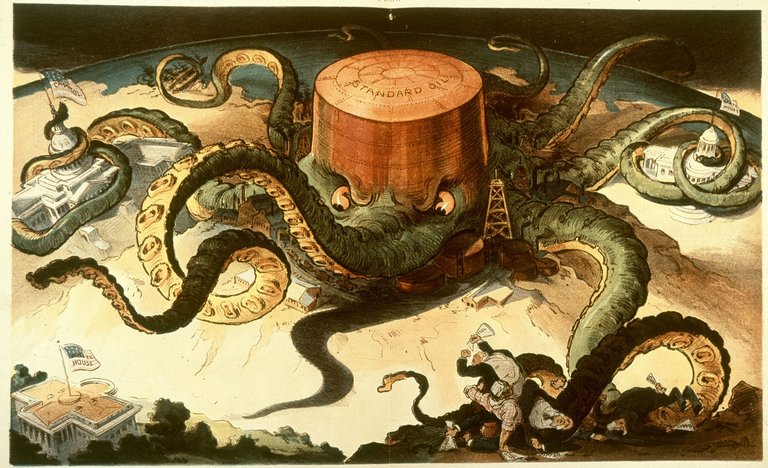What is a Monopoly?
To start with, what is a monopoly? According to Merriam-Webster, a monopoly is defined as: "exclusive ownership through legal privilege, command of supply, or concerted action." This definition is intriguing because often when monopolies are discussed more emphasis is placed on the result of the monopoly: exclusive ownership/control over a good, service, or industry as opposed to the means by which this is achieved. In an efficient free market economy, the ends must justify the means, or else the business loses out. In some instances, due to social issues, regulatory capture, or various other instances of governmental intervention, this can get flipped with the means used to justify the ends. This can introduce market inefficiencies and unfairly stifle competition, the very thing that anti-trust legislation seeks to avoid.
Innovation
According to Dr. Bylund, monopolies are both a result of and incentivize innovation. To innovate, to create an entirely new product and sell that product- means that you are in effect a monopoly. This is the fundamental idea behind the concept of patents. The inventor holds the “monopoly” over that design, and it is the sole right of that individual to monetize their design. This is to encourage innovation, as there would be very little incentive to sink the requisite time, labor, and capital into a design when you could immediately be undercut by a competitor who did not have to take on the expense. Innovation does not only consist of creating an entirely new product. Decreasing costs per unit, decreasing the time it takes to make something, or discovering new ways to market to a consumer base are all examples of innovation that if implemented successfully enough could lead to a monopoly. Is innovation bad…? Well, that is up to the reader to decide, but many might argue that it isn’t.
The Law
Innovation aside, governmental regulation is a great way to enforce a monopoly. In the democratic republic, as it stands in the United States, single individuals often hold great sway over the regulations that impact various industries. Congress is not a subject matter expert on the ins and outs of every industry that goes on within America, so often they delegate significant authority to Executive Agencies that create regulations as they see fit. In a governmental system where a single agency holds such great control over an industry, companies are incentivized to influence regulations by any means necessary to their advantage. This regulatory capture often can give rise to monopolies, duopolies, or oligopolies that can utilize these advantages to actively discourage competition. Great examples of industries where this has occurred are: power distribution, pharmaceuticals, banking, and railroads. Oftentimes new competition can be crowded out by the sheer number of regulations as actively complying with them all significantly raises the bar of entry.
A Paradox?
Often the stated reason that a monopoly is undesirable is that if there is no competition, in theory, the company can raise prices to whatever it wants. Consumers are simply forced to pay up or go without. Many times, it has been pointed out that this is simply not the case, as by raising prices a company creates an opening for an enterprising entrepreneur to enter the market and undercut their cost. The argument then goes that while being temporarily harmed, cheaper alternatives would eventually appear on the market and then perhaps prices could even be lowered as there would be increased competition. However, the truth is that this is now how monopolies are enforced. It is virtually impossible to have a monopoly, without the assistance of government regulation. Unfortunately, due to how the American government is structured, money is power. A company innovating to gain a market advantage leads to massive profits, and this profit can be turned around to influence regulations. This then enables companies to turn that initial temporary advantage into a permanent one. The result of this is a net negative for the consumer as they pay higher prices, and an increased barrier to entry slows the pace of innovation. Unfortunately, I do not see how it would be possible to prevent this in the current American political landscape. People who have power do not like to give up that power. If we remain a democratic republic, powerful people will need to raise campaign money. If powerful people are asking for donations, companies will be more than happy to supply those donations to gain inside leverage and modify public policy to suit their best interests. When public policy benefits one company or entity over another, a monopoly is all but inevitable.
